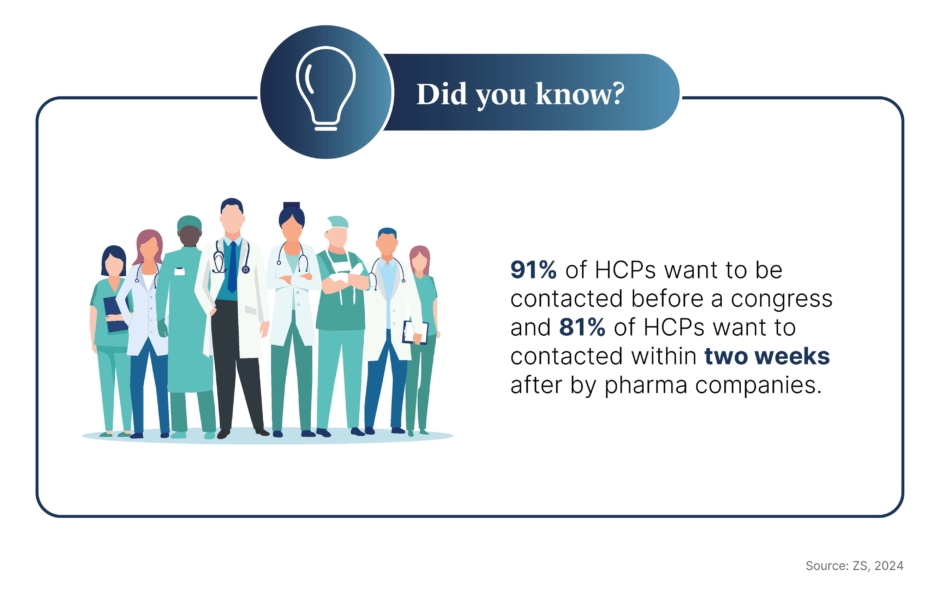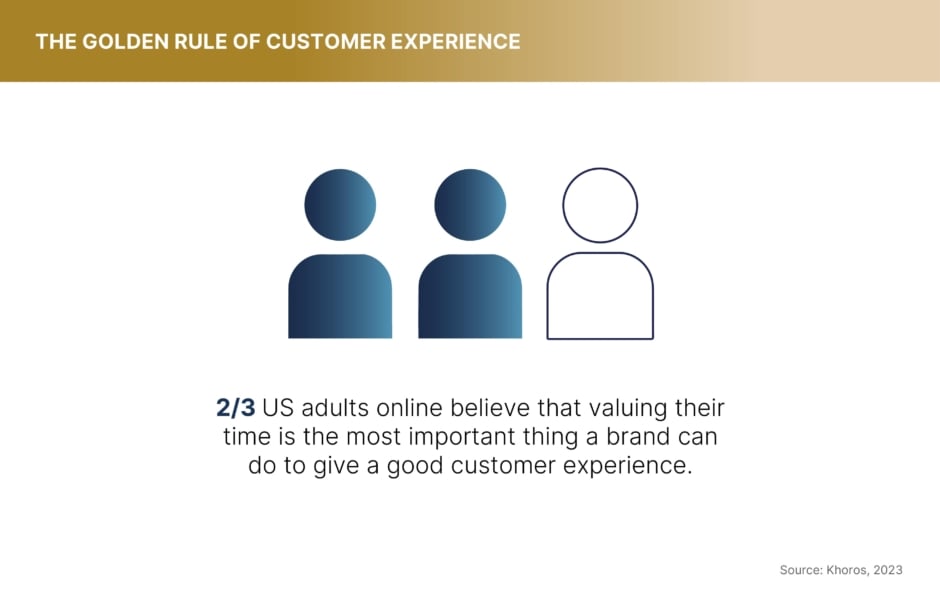In today’s fast-changing pharmaceutical industry, it is vital for pharma companies to provide an excellent customer experience for healthcare professionals if they want to build trust and improve patient outcomes
Words by Jade Williams
In one way or another, everyone on the planet is a customer. Throughout every walk of life, no matter what continent you live on or language you speak, a transaction is made, and you are sold to.
For the pharmaceutical industry, taking the customer from A to B should be as seamless as possible. This is becoming a growing priority for the industry – and with research from the Henley Business School finding customer-centric companies 60% more profitable than those that aren’t – this comes as little surprise.
“HCPs work in a busy and pressurised environment and their informational and service needs must be addressed efficiently,” notes Helen Harrison, Client Strategy Director, Kanga Health. HCPs are notoriously time-poor, so getting good communications with real value to them should be a high priority. No matter the point of interaction, they need quick and tailored engagement that is relevant to their needs. According to PWC, almost 80% of US consumers say that convenience, knowledgeable help and friendly service can make up the most important elements of a positive customer experience, no matter the industry.
Pharma is catching on to the value of this, but the customer experience, or CX, formula isn’t yet perfect. How can pharma companies curate a customer journey that truly excels, from beginning to end?
Get creative with congress
Pharma’s first point of contact with a new HCP is often at a congress. An eye-catching stand or an exciting development in their therapy area can be the key to catching a future customer’s attention, but is enough attention being paid to the time before the event begins?
“It sounds simple, but the best strategy to drive HCP congress engagement before a congress is to engage with them about the congress,” explains Robert Tegge, Associate Principal, ZS. A recent study by the company found that nine out of 10 HCPs are open to engaging with pharma companies before a congress even starts. These communications should help HCPs plan their time at the congress, while providing the pharma company with an insight into which sessions will be most popular.
Pre-congress engagement also lays the groundwork for a successful interaction during the event itself. “When pharmaceutical companies focus on the needs of the customer in their design and execution, they can deliver an exceptional experience,” Tegge continues. At the congress, pharma companies have a brief opportunity to appeal to passing doctors, so their stands need to be designed with the customer in mind.
Interactive exhibits are just one way to cater to HCPs’ interests, with over 21% of HCPs surveyed by ZS citing innovative aspects such as VR technology at a stand as one of their top two reasons for visiting. Offerings like these can not only increase learning and engagement, but also set the tone of the congress as a place for HCPs to discover new science, rather than be converted into customers in their droves.
But the congress experience should never end with the congress. Pharma companies should always be looking at how to connect with HCPs after the event. According to recent ZS research, 80% of HCPs are looking for follow-up from pharma companies within two weeks of congress “with more information about what was presented or engaging in a future event,” notes Tegge.
If companies can achieve congress conversion, they are halfway to turning an HCP into an engaged and valued customer. One useful approach is to work with companies such as EMJ on a post-congress symposium review. This can prolong the life of a symposium and enhance its credibility, as the content is independently reviewed and hosted.

Pack a punch with product websites
That’s not to say that companies should drop the ball when it comes to making their own websites easily accessible and searchable. “Many pharma sites are not findable and often provide information that is also not of the right level or answering the real requirements of HCPs,” states Harrison, transitioning the conversation towards the online space.
Sharing this sentiment, Philippe Kirby, former Global Head of Channel Engagement and Execution, MSD, argues in favour of greater co-creation with HCPs on the EMJ GOLD podcast. “You should be doing what we call usability testing, which means that you should expose your wireframes or prototype of your webpage to an actual end user and say, ‘Hey, what do you think? Is this something you’d like to engage with?’.” Simply asking a user how they think a site can be improved and requesting genuine feedback can give valuable insight – if a company is willing to make alterations.
“Sites are often sales orientated and this is off-putting,” Harrison continues, “so presenting information in a more credible and scientific way engenders trust.” Ensuring that the information provided is first of all driven by science, not sales, is a good way forward, and so steps in the vital role of medical affairs.
Send in the MSLs
A recent survey by EPG Health found that European healthcare professionals had a better customer experience with MSLs than with sales reps in all key areas, particularly digital. While sales reps were still identified as the second most important channel, MSLs came out on top for video calls, emails and face-to-face meetings.
While CX may be seen as primarily a function of marketing departments, medical affairs’ vital role in customer engagement cannot be denied. MSLs are uniquely placed to understand the specific needs of HCPs and can gather actionable insight to pass up the chain. While industry should look to improve its digital offering, the value of this important department must not be underestimated.
“MSLs are critical to engaging with HCPs,” reinforces Tegge. “While the frequency of interaction may not be the same as sales representative or digital channels, MSLs are able to quickly establish trust and credibility by leading with the science and supporting in answering critical questions for HCPs to better meet the needs of their patients.” There is no denying the value that a trusted interaction can hold in CX, making MSLs not only a key driver in passing information up the chain – but also in helping a customer feel important and valued.
Be on hand to help
So, once a customer has adopted a drug and trust has been established, how can pharma make their subsequent experience truly superior? For Harrison, making it as easy as possible to get in contact with a company is the way forward.
She highlights the importance of HCPs being able to access information easily and efficiently, stating that “when they need support resources for a prescribed patient, they should be able to access them with ease and [pharma should] be able to provide them there and then”. The internet can sometimes act as a faux friend to doctors, who need to research medical information frequently for their patients, but often finding the right information in the online jungle can be a difficult task.
This can be solved by companies creating platforms and tools that are intuitive and easy to navigate, allowing HCPs to find and use resources without unnecessary delay, but also having a readily available support service at hand. “Lilly did an excellent job in creating the first website to answer medical information queries in real time,” Harrison continues, speaking to how companies can field questions from HCPs regarding the off-label use of medication or other queries.
The aim of the site, Harrison states, “was to provide direct answers to unsolicited medical questions at the point of need, staying within the HCPs’ workflow, rather than waiting the usual 48 hours” for a response. In this way, HCPs were able to make faster, well-informed decisions regarding patient care. “With the advent of AI one can only assume this type of service will become even better and the norm,” she adds.

How to be best in class
In an era where exceptional service is the norm, delivering a top-tier experience to HCPs demands more than just understanding their needs – it requires a relentless commitment to excellence. “HCPs are consumers like any other,” notes Harrison, “and their expectations will only rise as they are exposed to experiences, they receive across industries.”
When an HCP interacts with pharma, they shouldn’t have to lower their expectations of customer experience. CX is constantly improving for customers in other industries, so why not for pharma?
For Tegge, it all comes down to personalisation. “It seems to be cliché at this point to say, but I believe that customers are increasingly looking for a more personalised experience – personalised in the type of content they receive and how they receive that content.” And the numbers tell the same story. According to a recent Salesforce report, 80% of customers say the experience a company provides is just as important as its products and services, and 65% expect companies to adapt to their changing needs and preferences.
To this, Kirby agrees: “Any industry, not just pharma, that isn’t trying to develop a personalisation approach is probably missing something.” Treating HCPs as collaborators rather than customers, and as people rather than points on a data sheet, can easily improve the CX journey from top to bottom.
If everyone is indeed a customer, all companies should be looking to make their customer experiences as exceptional as possible. As the pharma industry evolves and technology advances, it should be continuously enhancing its offerings for HCPs – matching the experience they’ve grown to expect, and ultimately helping them help the world.









